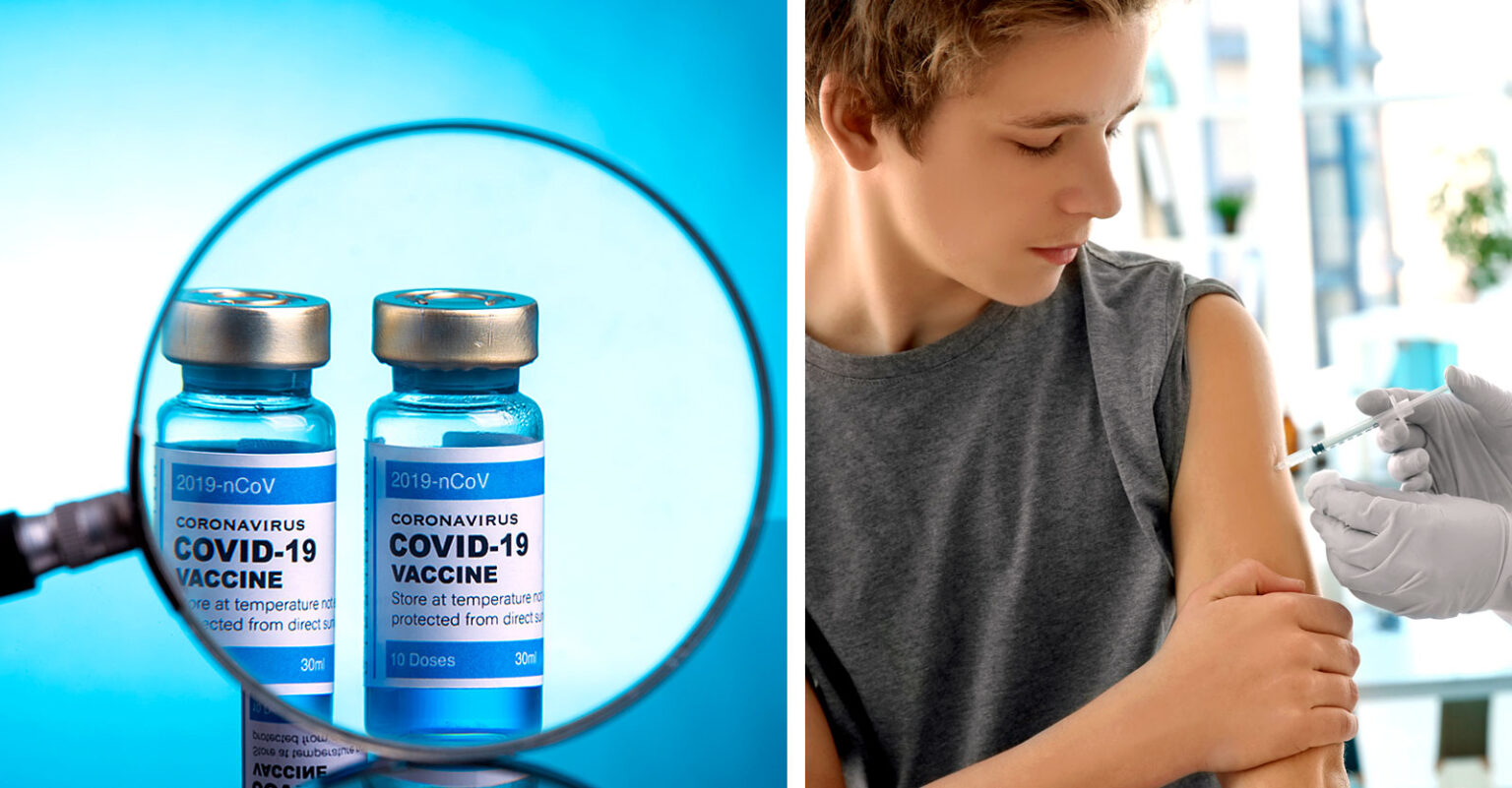by Angelo DePalma, Ph.D., Childrens Health Defense:
 A Norwegian study found a low but significant risk of serious side effects among adolescents a short time following a second COVID-19 vaccination. The tenfold higher risk for anaphylaxis was the most concerning outcome, but the researchers also found swollen lymph nodes and heart issues.
A Norwegian study found a low but significant risk of serious side effects among adolescents a short time following a second COVID-19 vaccination. The tenfold higher risk for anaphylaxis was the most concerning outcome, but the researchers also found swollen lymph nodes and heart issues.
Teens receiving two doses of an mRNA COVID-19 vaccine were at much higher risk for anaphylaxis, swollen glands and two types of serious heart inflammation, according to a study by the Norwegian Institute of Public Health (NIPH).
TRUTH LIVES on at https://sgtreport.tv/
When the post-vaccination observation window increased from 14 to 42 days they observed a 39% higher risk for appendicitis after the first shot and a 43% increase after the second dose.
The study also confirmed that despite those safety signals, serious post-infection outcomes were rare among COVID-19-vaccinated adolescents ages 15-19.
Two doses led to tenfold increase in risk of anaphylaxis in teens
Researchers led by German Tapia, Ph.D., a postdoctoral epidemiologist at NIPH, enrolled 496,432 adolescents born between 2002 and 2009, living in Norway and unvaccinated before the official vaccine approval for this age group.
Exposure categories were: no vaccination, one dose of COVID-19 vaccine or two doses.
Teens experiencing side effects within 14 days of receiving the shot were examined for anaphylaxis, death, acute appendicitis, convulsions, facial nerve palsy, herpes zoster (shingles), swollen glands, pericarditis, myocarditis, irregular heartbeat, blood vessel disorders, joint disease and several other adverse reactions.
The researchers found no statistically significant associations between first-dose vaccination and any of the outcomes when comparing vaccinated and unvaccinated groups, but several serious safety signals arose after the second shot.
Second-dose vaccination was associated with a greater-than-tenfold increase in the risk of anaphylaxis compared with unvaccinated, a 133% greater risk of swollen glands and a 427% rise in myo- and pericarditis at up to 28 days after the last dose.
Anaphylaxis is a serious reaction, usually caused by allergy, with mild to life-threatening severity. Symptoms include coughing, wheezing, tightness in the chest, shortness of breath or trouble breathing, thick or “heavy” tongue and slurred speech.
Some of the study participants who experienced symptoms of anaphylaxis recalled a feeling of doom right before their episode. Unconsciousness and difficulty breathing are among the most serious signs.
In addition to allergies, anaphylaxis may be caused by injected penicillin-class drugs, muscle relaxants used during anesthesia and nonsteroidal anti-inflammatory drugs (for example aspirin, ibuprofen).
Swollen lymph nodes (glands), or lymphadenopathy, are typically caused by bacterial or viral infections. Symptoms include tenderness, pain or swelling in the neck, under the chin, in the armpits or groin.
Lymphadenopathy is quite common after many childhood and adult vaccinations, which is likely why the authors did not delve into its significance in their study.
Myocarditis and pericarditis are two extensively studied forms of heart inflammation occurring after mRNA COVID-19 vaccination.
Pericarditis involves inflammation of the pericardium, a fluid-filled sac surrounding heart muscle. Pericarditis symptoms resemble heart attack: pain behind the breastbone or on the left side of the chest, shortness of breath, swollen abdomen and fatigue or weakness.
Pericarditis usually resolves on its own but more serious cases may persist or progress to recurrent or chronic disease. Since Tapia et al.’s study observation window was only two weeks, no conclusions could be drawn on the seriousness of these cases. And aside from citing Israeli and Chinese studies mentioning pericarditis as a “most concerning” side effect, Tapia et al. did not provide any insights.
Myocarditis, or inflammation of heart muscle, is also mainly caused by infections and the symptoms are similar to pericarditis. Myocarditis complications are more serious, though, and include heart failure, irregular heartbeat leading to stroke and heart attack.
Again, Tapia et al.’s narrow observation window did not allow a thorough assessment of heart-related adverse events in this population. The Defender reported that myopericarditis heart damage persisted in 63% of teens for months post-vaccination.
While health officials often refer to post-COVID-19 vaccine myocarditis and pericarditis as “mild” or “transient” (or both), other observers have questioned whether any case of heart damage can be considered clinically insignificant.
Read More @ ChildrensHealthDefense.org



